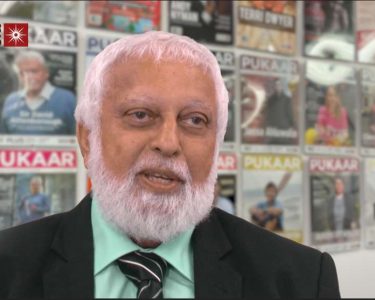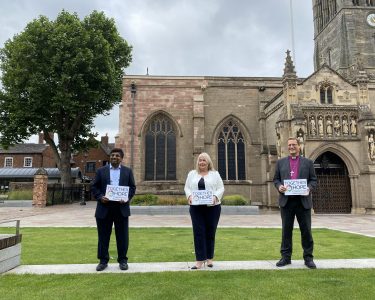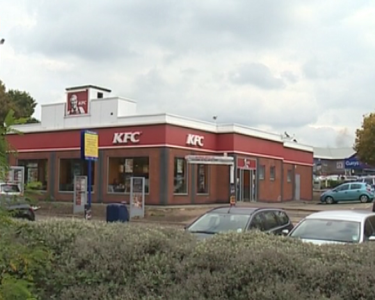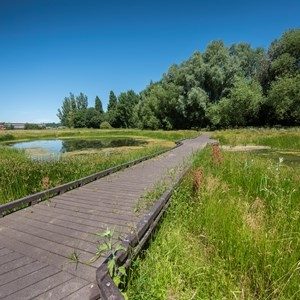Lockdown has had such a profound impact on the way we carry out our daily lives. Planning our shopping trips, working from home, getting our regular exercise and ensuring our social lives don’t suffer by organising online chats with our loved ones, have become familiar tasks to many of us over the past 10 weeks or so. This strange switch in our lifestyles has also had a huge influence on community groups and religious institutions, and in particular the Islamic community.
This weekend sees the arrival of Eid.
Eid al-Fitr or “Festival of Breaking the Fast” is a celebration of the end of Ramadan, where families and friends gather to pray and spend time breaking their fast with their loved ones. Sadly, due to the lockdown, the Muslim community will be unable to practice their usual gatherings. When asked about the plans for Eid in the Muslim community, Suleman Nagdi MBE from the The Federation of Muslim Organisations (FMO) had this to say: “As this Ramadan comes to an end, and we replace hunger with the Eid feasts, and add a new hunger, that for the embrace of our friends and neighbours in our Masjids (Mosques) in this new world of social distancing; this final week I pay homage to our Masjids.
Let it not be forgotten that the Masjids took the very early step before the official Government lockdown to close its supplementary classes and halls of prayer. As we all know, Masjids play an important role in imparting spiritual guidance and knowledge to congregations and provide children with the tools to be positive contributors to wider society as British Muslims.”
In fact, it was the Sunday before Prime Minister Boris Johnson announced the lockdown that Suleman took part in a meeting with over one hundred representatives from the Muslim community, including Imams and Mosque chairpersons. Following these meetings and discussions with scientists on the best ways to help reduce the spread of the virus, they took the necessary steps to advise on Mosque closures.
But regardless of these closures, the Muslim community of Leicester has still not taken a back-seat. Suleman said: “During lockdown, under the leadership of Masjid Committees and Ulema, many have adapted from the centres of our community and have become centres for so much more including remarkably providing food parcels to the elderly and vulnerable across the city to people of all backgrounds and to front line staff to show our appreciation to their work. It would be remiss of me not to also mention our Masjid Committee members, Imams, Muezzins and volunteers who have been heroes in their own right for maintaining the security and spirituality of our blessed places of worship.”
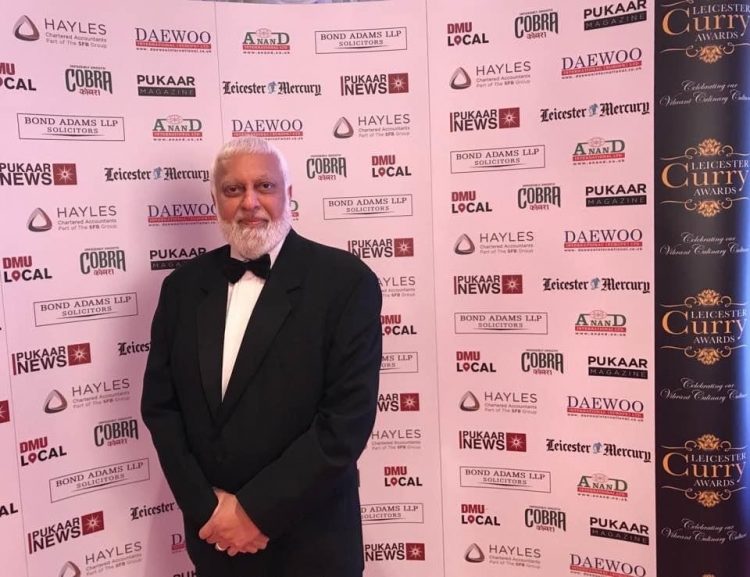
Suleman is the elected Public Relations Officer of the umbrella group the Federation of Muslim Organisations (FMO) which works with Imams, Mosques and Islamic institutions across the sectarian divide. This elected body has been around for over thirty years and has a current membership of just under two hundred affiliates.
Speaking of the lockdown changes that Eid faces, Suleman said: “We have two huge Eid celebrations that usually happen in Leicester. One is in Spinney Hill Park and one at Victoria Park. These are understandably unable to take place this year, which detracts from one of the main ideas of Eid—to gather with other Muslims in mass prayer.”
Suleman lives in a 3 generation family home, with his children and grandchildren. During Eid, they would normally meet and pray with his 5 brothers and his sister in Leicester, but sadly this year, it cannot happen.
Reflecting on the impact of the coronavirus lockdown, Suleman said: “As families, some have lost livelihoods and sadly loved ones, had enforced distance from our families and friends, but yet in some instances have been provided with an opportunity to connect with each other in different ways and with an increased appreciation.
“Personally, during lockdown I have had an opportunity to bond with my Grandchildren like never before, away from the hustle and bustle of daily life and routines.
“Each week in our streets and beyond, we rightly celebrate nationally and locally for our NHS and key workers, individuals usually reflected relatively poorly in their pay or standing, now elevated to the honourable status their work demands.”
Another issue that Suleman has dealt with is organising the release of the bodies of loved ones that have passed away. In Islamic communities, the dead are usually washed and enshrouded before burial. This practice is a long held one, and is extremely important to this community. Suleman is a founder member of MBCOL, a community-based funeral service which also provides training for medical staff, Police and other statutory authorities. Much of this work has been highlighted in a pioneering book, which he authored titled ‘Discovering through Death – Beliefs and Practices’ which is used as a good practice guide in hospital, police and other settings. Among his achievements with MBCOL has been to sign a historic legal document together with Leicester City Council which has enabled Muslims in the UK and in parts of Europe, to access faith sensitive and timely burial provisions. He has contributed to several high level Government consultations including organ donation and the use of MRI/CT scanning to replace traditional autopsies. This has included close liaison with the Department of Health and the University of Leicester to carry out a three year trial which if successful, would change law into determining the methods used to establish cause of death in England & Wales.
Whilst not a religious requirement, it is a historical practice for many Muslims during Eid, to visit the resting place of their friends and family who have passed away. This has led to mass gatherings in cemeteries. In this time of social distancing, the risks of any gathering on this scale is high, and the rules and regulations are still unclear.
Suleman has made a request though, to those in the community that wish to pay their respects to the dead. He said: “As an act of charity to those that have lost loved ones during the coronavirus lockdown, I ask that the rest of us refrain from visiting the cemetery during Eid, and we allow those that are grieving and have not yet had the chance to say their goodbyes the freedom to do so in peace and quiet.
“We can then visit the resting places of our friends and family a few days after. This is not a contradiction to our religion as visiting the graves of the dead on Eid is just a cultural practice, not a religious one.”
To those celebrating Eid this weekend, stay safe, and stay positive, and enjoy this time with your loved ones, as we all should, no matter our beliefs or lack of. Eid Mubarak to you all.



